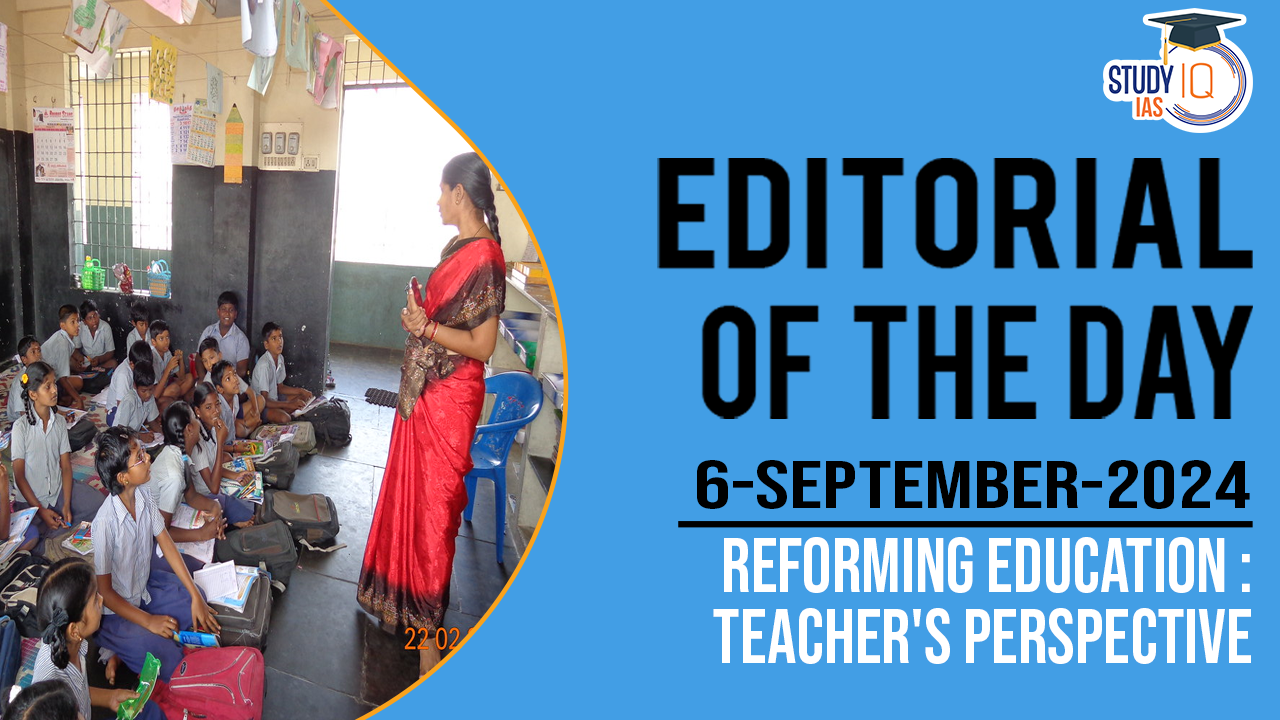Table of Contents
Context:
- There is no standardised approach to reforming education, and countries often implement changes in their unique ways.
- Teachers, however, are frequently overlooked and mistreated during these reforms.
Negative Perceptions of Teachers
- Lack of Trust: Teachers are often perceived as culprits rather than victims, leading to a lack of trust and involvement in decision-making.
- Low Expectations: “Anyone can teach” is a common misconception, and teachers are often held responsible for systemic failures.
- Disrespect and Exploitation: Teachers are subjected to low pay, heavy workloads, and limited autonomy.
- Political Interference: Teachers are often targeted by political interference and the dismantling of their unions.
Historical Context
- CCTV Surveillance: The introduction of CCTV surveillance in schools has further eroded teachers’ privacy and autonomy.
- Coaching Industry: The rise of the coaching industry has undermined the role of teachers in preparing students for exams.
- Unequal Status and Recognition: Teachers, especially at primary and pre-primary levels, are often undervalued and underpaid.
Challenges in Higher Education
- Rapid Reforms: They include the semester system, four-year undergraduate programme, and centralised admission through a MCQ-based test.
- Workload and Student-Teacher Ratio: Increasing workloads and the large backlog of vacant teaching positions has created a significant staffing shortage.
- This has led to an increase in workload and student-teacher ratio.
- Vacancies and Ad Hoc Appointments: The lack of permanent positions and reliance on ad hoc teachers contribute to dissatisfaction.
Conclusion
The mistreatment of teachers has a significant negative impact on the nation’s human resource development. It is crucial to recognize the importance of teachers and provide them with adequate support, respect, and involvement in educational reforms.


 Defence Acquisition Council (DAC): Role,...
Defence Acquisition Council (DAC): Role,...
 Alternate Wetting and Drying (AWD): A Cl...
Alternate Wetting and Drying (AWD): A Cl...
 Makaravilakku Festival: Significance, Ri...
Makaravilakku Festival: Significance, Ri...

























